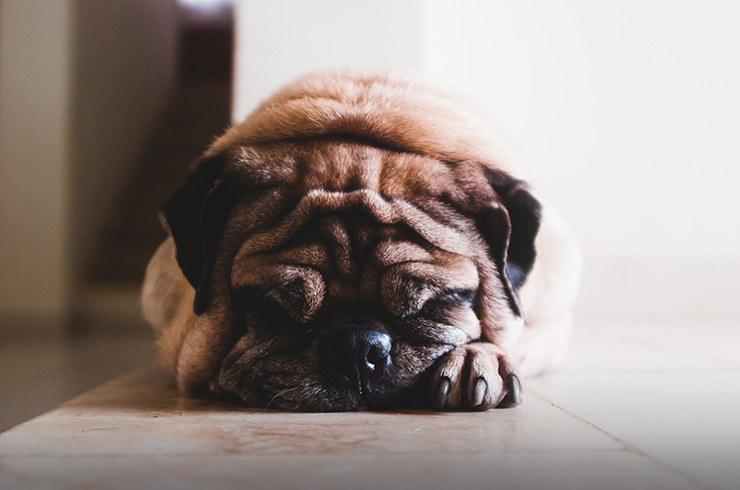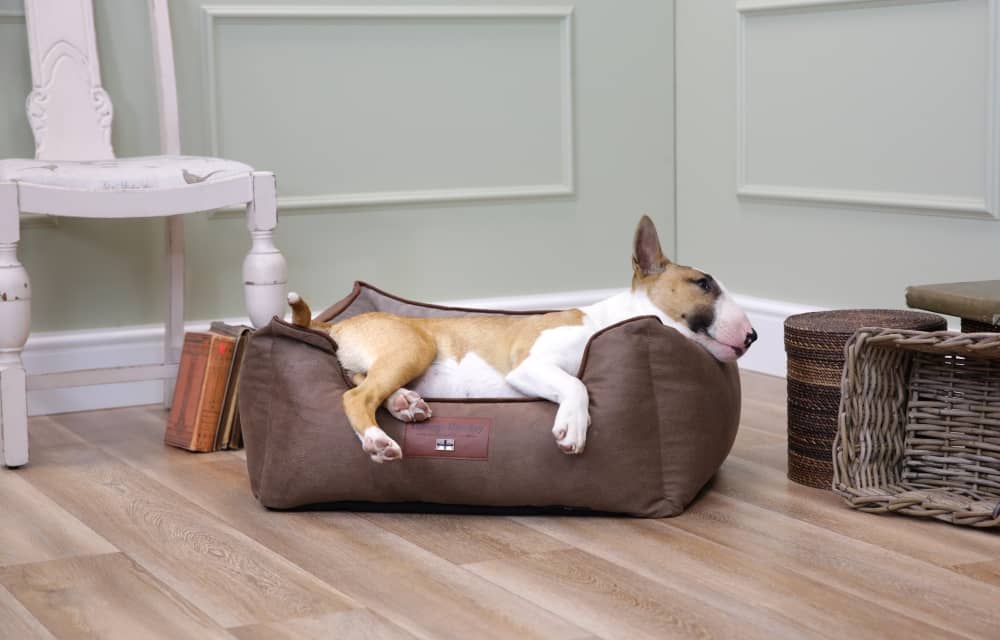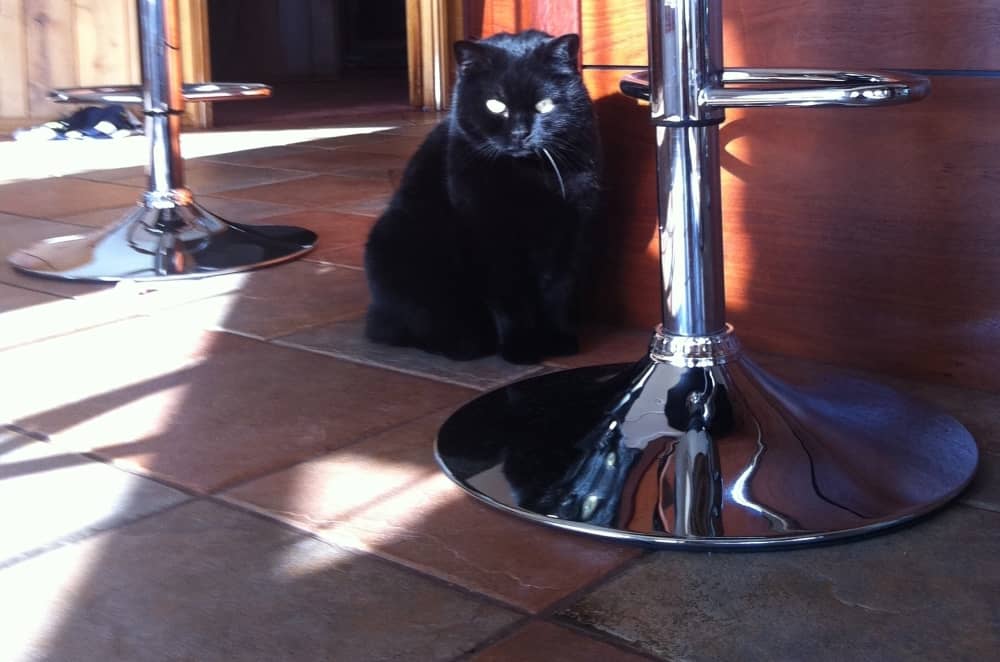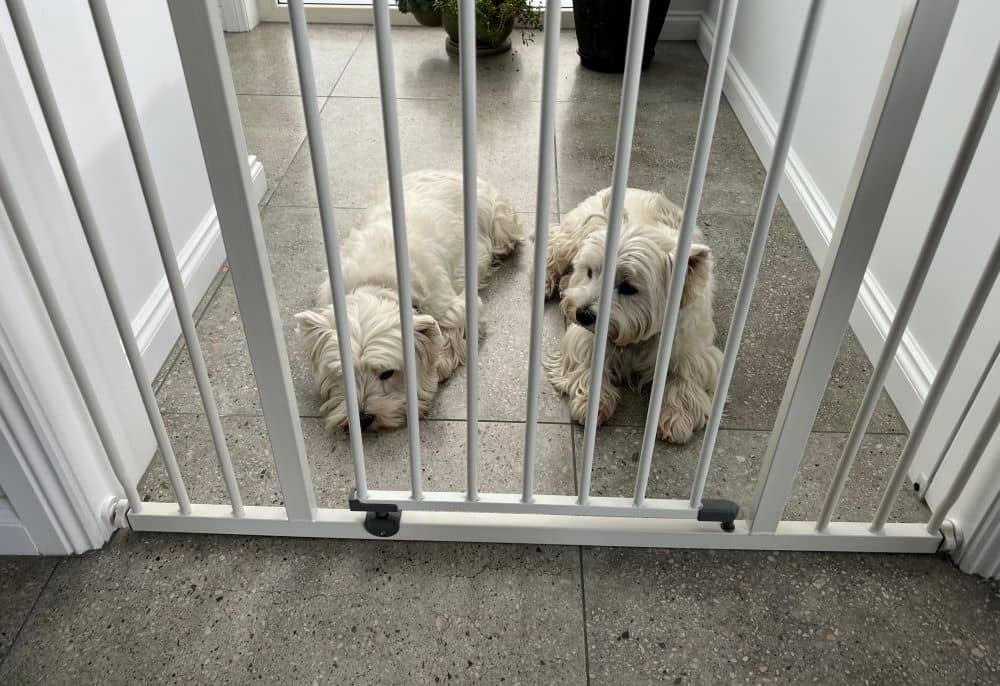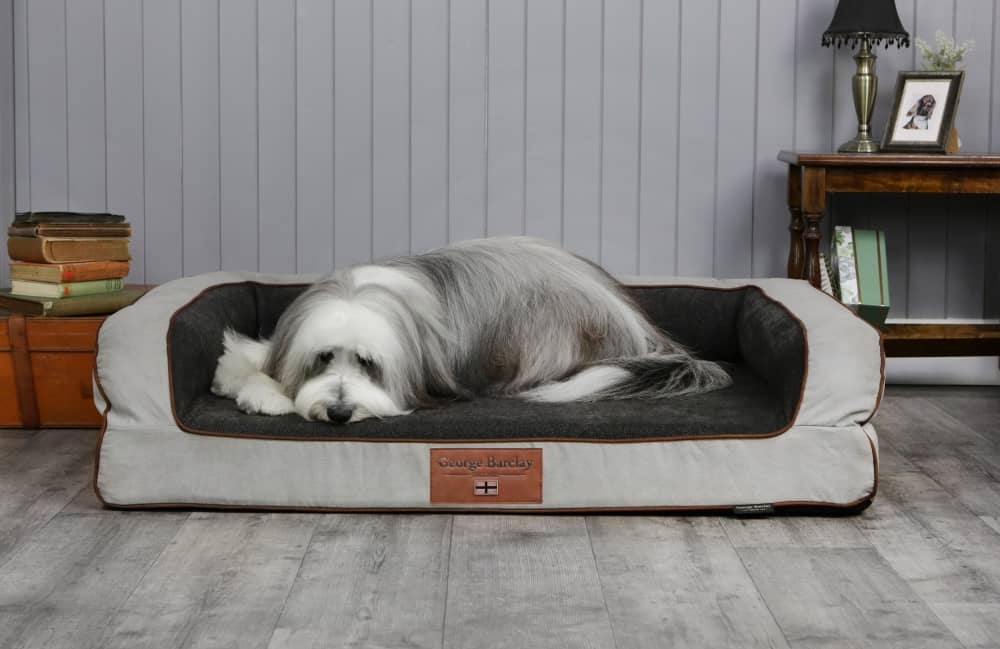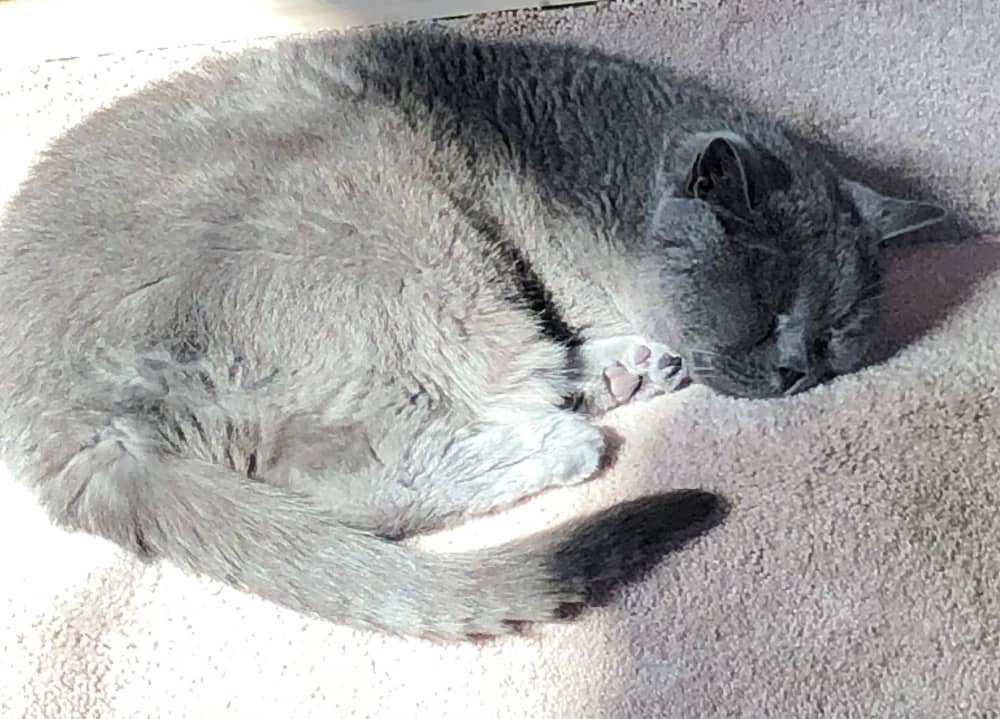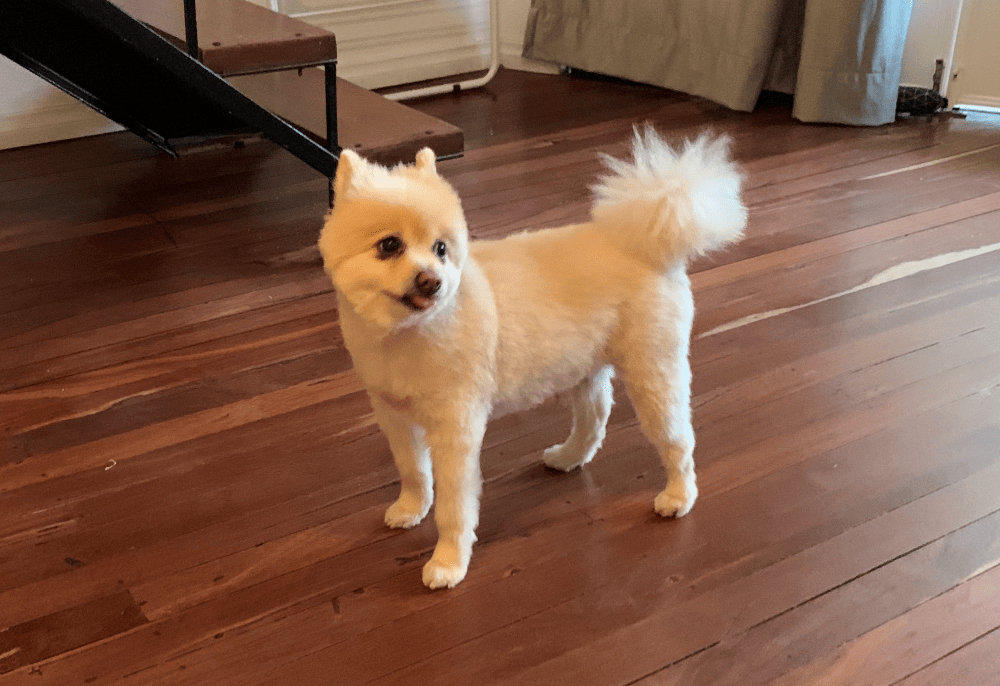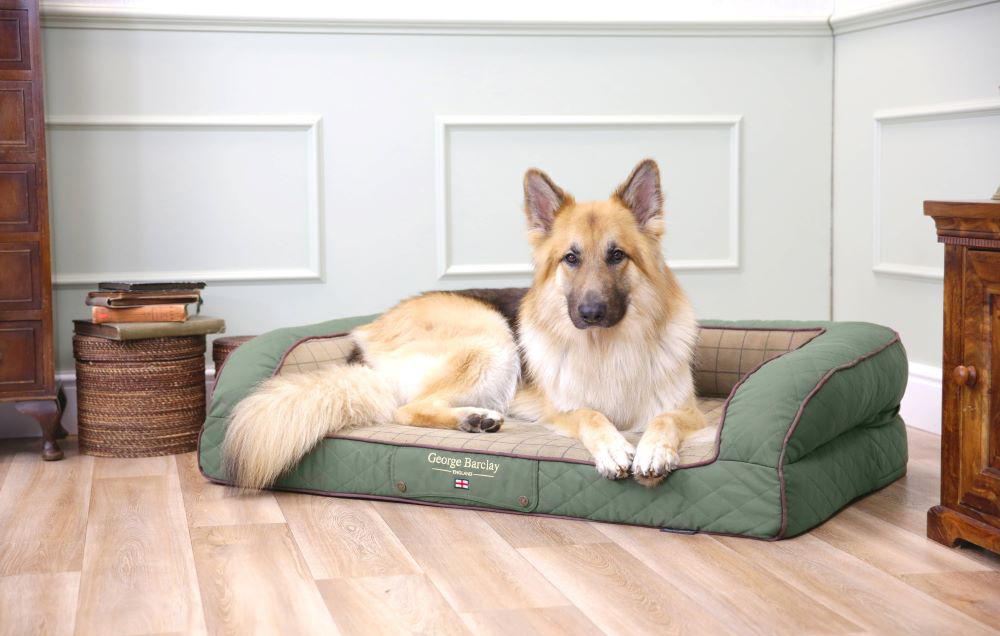Last updated: 10/10/2022
Pets, particularly cats and dogs, are considered part of the family and make a home feel more like home. Sadly, animals and even kids have other priorities other than caring for and preserving a home and its flooring.
No matter how much you love your pet, nobody wants to come home to damaged or ruined floors. Although having a pet should cause you to think twice about choosing some flooring options, it does not mean you have to compromise on your home’s style, look and feel.
This blog covers what to look for with pet-friendly flooring options.
Characteristics of Pet-friendly Flooring – What to Look for
The following points are the most critical characteristics for pet owners to consider when deciding on their flooring:
Scratch Resistance and Durability
Firstly we would like to state that there is no “scratch-proof” floor covering. Any type of flooring can be scratched; however, some are more scratch resistant than others. Flooring around ‘pet traffic’ needs to resist wear and tear accumulating in high-traffic areas as much as possible and look presentable. Sharp claws and nails, particularly from large dogs, make increased durability a must-have.
Moisture, Stain and Odour Resistance
Animals will bring outside mud and debris into the home. ‘Accidents’ are common occurrences with pets that can cause permanent damage to some flooring types, mainly if left unattended for long periods of time. So resistance to watery stains and odours is very important.
Waterproof, resistant and anti-slip flooring is most recommended to pet owners. See this example from Eco Flooring Systems, perfect for pets.
Side note: We would also like to point out that no products can guarantee ‘urine proof’ as urine left unattended on any floor can potentially cause permanent damage.
Easy to Clean
Being able to clean quickly and efficiently is a big plus when it comes to pets and flooring. Tiles are the easiest to clean, followed by hybrids, vinyl and laminate flooring.
Considering the amount of time a pet may spend on your floor, we also advise you to find a cleaning product that is both pet-safe and compatible with your flooring type. In diluted concentrations, nearly all products are safe to use around pets.
These are the cleaning products to be most wary of:
- Bleach
- Ammonia
- Phenols
- Glycerol Ethers
- Phthalates
Our Best Pet-Friendly Flooring Options
Vinyl Flooring
Vinyl flooring is a great flooring option for pet owners. Not only is it relatively inexpensive, but it is also waterproof, and fairly scratch and stain-resistant. This means it will stand up to doggie paws fairly well and stay looking new for longer. On top of this, it is also one of the easiest flooring types to clean and maintain.
I know what you’re thinking: vinyl? However, today’s vinyl flooring is far from your grandma’s outdated linoleum.
Thanks to modern advancements in vinyl plank design and development, it looks just as good as it is durable. Many homeowners have difficulty distinguishing it from traditional wood and stone flooring.
On top of this & compared to vinyl flooring of the past, there are many vinyl flooring products, such as Terra Mater, that are low in VOC (volatile organic compounds), making it a safe flooring for pets and children alike.
Pros:
- Waterproof
- Scratch and stain-resistant
- Easy to clean
- Comfortable underfoot or paw
- It looks like real wood or stone
- Cheaper alternative to timber flooring
- Low VOC product
- Long or lifetime warranties
Cons:
- Colours dull over time
- Not ideal for outdoor use
Tile Flooring
Tile is another great flooring option for cat and dog owners. It’s durable and provides a timeless look that will always be in style, regardless of the decade.
Due to the hardness and resistance to moisture, tiles are scratch resistant. Tiles are also super easy to clean and require no maintenance except for the occasional grout cleaning. This alone makes it a popular choice for many dog owners. Tile grout also helps pets gain traction on the surface of the floor.
If your grout inevitably gets grotty, be sure to check out our grout cleaning guide.
Did the puppy have an accident? Simply grab some paper towels and wipe them up. Have an Irish Setter or another long-haired breed famous for shedding? Pull out the broom and sweep up the hair.
As far as drawbacks are concerned, there aren’t many. However, one of the biggest cons of tile is price. Unlike vinyl, it can be costly to install and replace. Tile is also hard and cold, but this can easily be solved with some rugs and beds for your canine or feline pal to lounge on.
Pros:
- Durable
- Scratch-resistant
- Easy to clean
Cons:
- Hard surfaces can be uncomfortable
- Slippery for doggie paws
- Expensive to install and replace
- Difficult to repair
Laminate
Despite being recently replaced by vinyl and hybrid as one of today’s top flooring choices, laminate has been a popular option for cat and dog owners for quite some time now. Decades ago, laminate received a bad wrap, but as outlined in this post we are dealing with an overhauled and revamped Laminate which once again sits among the most popular flooring choices.
In addition to resembling real wood, laminate floors are durable and stain-resistant. Laminate is easy to clean and does not require any specialised cleaning products. They’re also much less expensive than hardwood floors and tile.
The versatility of laminate is astonishing, with a huge selection of looks and finishes to choose from.
With all it has going for it, laminate flooring should be a pet owner’s first flooring choice, right?
Right. Laminate is the most scratch, stain and burn-resistant product category on the market. Period.
Laminate floors, though can be quite slippery for pets and people. Unlike tile with textures and grout for traction, laminate floors are smooth and easy to slide around on, especially if there is an accident or water bowl spills.
Pros:
- Vey Stain-resistant
- Very & scratch resistant
- Easy to clean
- Water-resistant
- It looks like real wood
- Long-term guarantees
Cons:
- Slippery for paws
- More expensive than vinyl
Hybrid
Hybrid flooring technology largely combines many of the benefits of laminate and vinyl flooring, creating a waterproof, durable and scratch-resistant floor for your furry friends. Even standard hybrids resist pet stains coupled with lengthy or lifetime warranties. Wide selections closely mimic the texture of real wood or stone and are a fraction of the price.
Hybrids are also less slippery than surfaces such as Laminate, as they share the same wear layer as Vinyl Plank Flooring. Cleaning hybrid floors is easy thanks to the Polyurethane PVC wear layer, meaning you can wet mop a pet mess anytime you need to. Hybrid flooring is versatile, with a vast selection of colours and textures.
Pros
- Cheap to buy and install
- Easy to clean
- Scratch and stain resistant
- Quiet underfoot
- Slip-resistant
- 100% Waterproof
- Easy to replace and repair
Cons
- Dearer than standard vinyl
- Slightly less authentic than timber & bamboo floors
Side Note: Similar options, such as the Summit 9.7 mm Hybrid range, are a great alternative for pet-friendly flooring. These planks feature a stain-resistant, claw-resistant top layer that’s perfect for homes with furry friends.
Artificial Turf
Yes, we know it’s for the outside! However, what is outside dirt can be brought inside, and Synthetic Grass really helps with that problem. Artificial grass can also protect dogs from harm, creating a softer playing surface and reducing the number of messes dogs carry inside. So less muddy paws!
Artificial turf is not seasonal; animals can play on it all year round. Fake grass is also much easier to clean, as described in this post, with most mess brushed or hosed away. There is also no need to use chemicals or pesticides with Synthetic grass, which could poison your animal.
Flooring to Be Wary of With Pets
There are no “rules” per se regarding the best flooring for dogs, cats and other pets. If you want natural hardwoods or carpets, you can undoubtedly have either.
However, don’t be surprised if your expensive wood floors are scratched or your carpets need regular cleaning. The fact is, for pet owners, some flooring options are worse than others.
Carpet
Pets and carpet (or carpet tiles) don’t get along. The carpet is soft and warm, and your pooch or feline may love to lay on it for hours, but dirt, dander, and fur are easily trapped in carpet fibres.
Unless you’re okay with vacuuming daily and cleaning your carpet weekly or monthly, it will only be a matter of time until it needs replacing. Plus, carpets trap much more than dirt and fur. They also store ticks, fleas, and any other pests your pet pooch may unknowingly bring inside.
Cats will mainly try to pull up threads in the carpet with their claws.
Solid Hardwoods
We have already touched on this, but solid hardwoods are another flooring option for cat or dog owners where care must be taken. In fact, hardwood flooring, regardless of whether it’s oak or Jarrah, is kind of like that expensive dry clean-only dress or suit sitting in the back of your closet. In other words, it’s high maintenance.
Also, unless you love constant cleaning and maintenance, chances are you don’t want to waste your energy dealing with scratches and puppy or kitty pee.
Nonetheless, if you still have your heart set on solid hardwood floors, engineered hardwood flooring is the way to go. It requires less maintenance and upkeep than traditional hardwoods yet still provides the same classic look and feel. We recommend refinishing sooner rather than later, as described in this blog, regarding light cutback if the floor is directly stuck.
If you are adamant about solid hardwood, you will need heavier coatings to prevent scratches and stains as much as possible. But in return, the floor could become more slippery for your pets. Also looks toward harder Australian Eucalypt timbers such as Spotted Gum or Blackbutt, which are more durable than softer timbers, such as Oaks or Pines.
Bamboo
Bamboo is considered more suitable than natural hardwood in terms of scratches & durability, but the stylish appearance of real bamboo is far less durable than man-made surfaces such as laminate and hybrids. It is very sensitive to sharp nails and claws, and scratches quite easily. Spills and accidents must be wiped up quickly as the product is susceptible to moisture damage if these things are left unattended. If you insist on bamboo, we recommend lighter colours to conceal the scratches more easily, as light scratches will be more visible with darker colours.
Pet-Friendly Flooring FAQ’s
Laminate flooring offers the best scratch resistance for active, large dogs. Despite its reputation, modern laminate is highly durable against scratches, significantly more so than vinyl, hybrid, or solid timber.
The downside is that laminate can be slippery for dogs, especially seniors. For scratch resistance and traction balance, consider textured hybrid flooring, which provides better grip while still resisting most claw marks. Whatever you choose, lighter colours will hide scratches better than dark flooring.
Hybrid and vinyl flooring handle pet accidents best as they're 100% waterproof. Tile is also excellent but has grout lines that can absorb odors if not sealed properly. Water-resistant laminate can handle quick clean-ups but may sustain damage from accidents left too long. No flooring is truly "urine-proof"; the acidity in pet urine can damage any flooring if left unattended for extended periods. For all flooring types, prompt clean-up is essential to prevent permanent damage.
Hard flooring like laminate, hybrid, and tile can be uncomfortable for pets to lie on for extended periods. Vinyl and hybrid provide a bit more give than tile or laminate. The simple solution is strategically placing pet beds and washable rugs in your pet's favorite resting spots. This gives them comfortable, relaxing places while maintaining easy-to-clean flooring in high-traffic areas. For older pets with joint issues, this becomes especially important.
Yes, with pets, investing in higher quality flooring typically pays off. Budget laminate often has thinner wear layers that won't withstand pet traffic as long.
Premium hybrids (9.7mm with .7 wear layers) far outperform thinner options. With tile, higher-end porcelain will resist scratching better than ceramic. Whichever type you choose, look for products with specific pet-friendly features and extended warranties. The difference in durability can mean replacing your floors after 5 years versus 15+ years with pets.


